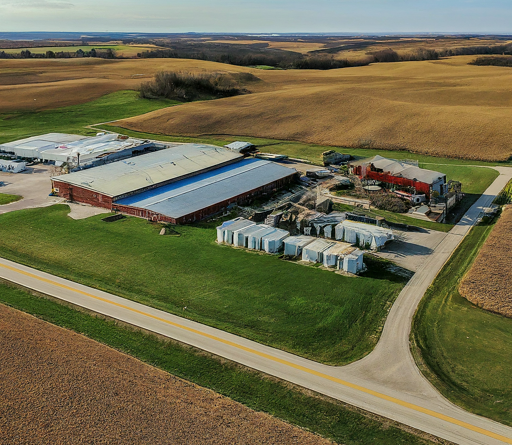Recycling Centers in Kansas: Pioneers of Sustainable Waste Management
As the world increasingly prioritizes sustainability, recycling centers play a crucial role in reducing waste and conserving resources. Kansas, with its diverse landscapes and communities, is home to a growing network of recycling centers that work to improve the environment and encourage sustainable living.
The Importance of Recycling in Kansas
Kansas, known for its expansive prairies and agricultural heritage, has recognized the importance of waste management and recycling in preserving its natural beauty. With the state producing significant amounts of waste from various sectors, including agriculture, manufacturing, and households, recycling becomes a critical tool in reducing landfill use and protecting the environment.
Recycling not only helps in reducing the amount of waste sent to landfills but also conserves natural resources, saves energy, and reduces greenhouse gas emissions. By turning waste into valuable materials, Kansas recycling centers contribute to a circular economy, where resources are reused and repurposed rather than discarded.
Types of Recycling Centers in Kansas
There are numebr of recycling center in kansas, each designed to meet the needs of its local community. These centers vary in terms of the materials they accept, the services they provide, and their methods of operation. Some of the key types include:
- Municipal Recycling Centers: Located in cities and towns, these centers often accept household recyclables like paper, cardboard, plastic, glass, and metals. Many municipal centers also offer drop-off points for electronics, batteries, and hazardous materials.
- Private Recycling Facilities: These are typically operated by private companies or non-profit organizations. They often specialize in specific types of materials such as scrap metal, electronics, or industrial waste. Private facilities play a key role in handling specialized waste streams that municipal centers may not accommodate.
- E-Waste Recycling Centers: With the rise of technology, electronic waste (e-waste) has become a significant concern. E-waste centers focus on recycling items such as computers, televisions, and mobile phones. They ensure that valuable materials like gold, copper, and rare earth metals are extracted while preventing hazardous components from entering landfills.
-
Construction and Demolition Recycling Facilities: Kansas has a thriving construction industry, which generates large amounts of debris. These specialized facilities recycle materials such as concrete, wood, metal, and asphalt, diverting them from landfills and reducing the demand for raw construction materials.
Mail in Services:
In addition to local recycling centers, Kansas also offers mail-in recycling services for certain materials, providing residents with a convenient option to recycle items that are not easily handled by traditional centers. These services allow for the safe disposal of items like electronics, batteries, and small appliances, which can be packaged and mailed to specialized facilities. Mail-in recycling programs help bridge the gap for rural areas or those without access to nearby centers, making sustainable waste management more accessible across the state.
Key Recycling Centers in Kansas
Several recycling center in Kansas are making significant contributions to waste management. Here are a few notable examples:
- Deffenbaugh Recycling (Kansas City): One of the largest recycling center in the state, Deffenbaugh Recycling serves both residential and commercial customers. The facility accepts a wide range of materials, including paper, cardboard, plastics, and metals, making it a critical hub for the Kansas City metro area.
- Waste Connections (Wichita): Waste Connections operates multiple recycling facilities across Kansas, with a strong focus on providing comprehensive recycling services. They offer curbside collection and drop-off locations for recyclables, as well as specialized recycling for electronic waste and bulky items.
- Mid-America Recycling (Topeka): This facility processes recyclable materials for the greater Topeka area, emphasizing community education and outreach. They handle common recyclables like paper, plastic, and metals, while also promoting zero-waste initiatives and sustainability education.
- ReStore Recycling Center (Lawrence): Managed by Habitat for Humanity, ReStore accepts donations of reusable building materials, furniture, and appliances. The center resells these items to the public, reducing waste and supporting affordable housing projects.
Challenges and Opportunities
Despite the progress, recycling in Kansas faces challenges, such as fluctuating market demand for recycled materials and the costs associated with recycling operations. Rural areas, in particular, may struggle with access to recycling services due to transportation issues and limited infrastructure.
However, Kansas is well-positioned to expand its recycling efforts. Educational programs in schools, community outreach, and partnerships between public and private sectors are driving increased awareness and participation in recycling programs. Local governments and organizations are also exploring innovative ways to manage waste, such as composting and waste-to-energy projects.
How to Find the Best Deals on Wholesale Confectionery
Conclusion
Recycling centers in Kansas are integral to the state’s efforts to protect its environment, conserve resources, and promote sustainability. As these centers continue to grow and evolve, they provide valuable services to communities across the state. Through education, innovation, and collaboration, Kansas is making significant strides toward a greener, more sustainable future.




